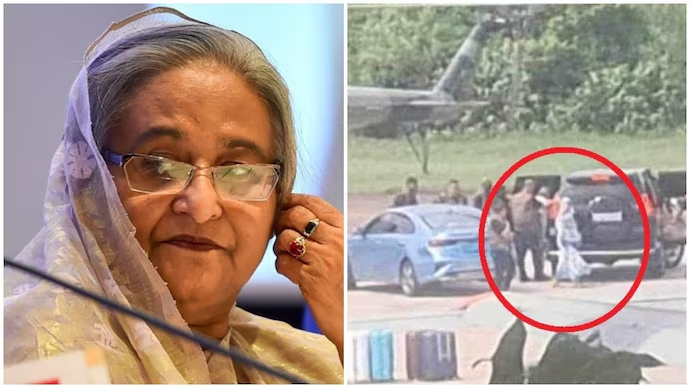The Ouster and Exile of Sheikh Hasina: Implications for India
Sheikh Hasina, the deposed Prime Minister of Bangladesh, has resigned and taken refuge in India. However, her exact location within India or whether she plans to remain there or move to a third country remains unclear. Meanwhile, Bangladesh’s Army Chief, General Wakar-uz-Zaman, has announced the formation of an interim government with the support of political parties and civil society.
Sheikh Hasina has been a steadfast ally of India. During her nearly 16-year tenure, the relationship between India and Bangladesh has deepened significantly. Therefore, her ouster and subsequent exile carry substantial implications for India.
The resignation and exile of Bangladesh’s Prime Minister amidst student and public protests bear similarities to the situations in Afghanistan in 2021 and Sri Lanka in 2022, when Presidents Ashraf Ghani and Gotabaya Rajapaksa fled their respective countries due to mass protests. However, Bangladesh’s circumstances are distinct for various reasons.
Subhajit Roy provides an insightful analysis on The Indian Express’s online platform regarding the implications of Sheikh Hasina’s exile for Bangladesh, India, and the global community.
1. The Situation in Bangladesh
Protests began last month in Bangladesh demanding reforms to the quota system. Sheikh Hasina, who had been in power since 2009, was re-elected for a fourth consecutive term as Prime Minister in January. These protests have been the largest against her since her re-election.
While Sheikh Hasina significantly boosted Bangladesh’s economic growth, her tenure was also marked by the suppression of opposition parties, the media, and civil society, leading to widespread unpopularity. The mobilization of the youth in protests marked a decisive end to her tenure.
With Sheikh Hasina now out of the country, Bangladesh’s economy is poised to face significant challenges. The nation has not yet fully recovered from the impact of COVID-19 and was in the midst of plans to transition to a developing country status in the coming years.
2. Implications of Hasina’s Exile for India
Sheikh Hasina’s nearly 16-year tenure represented a period of stability and cooperation between India and Bangladesh. Her departure signifies the loss of a reliable ally for New Delhi. She played a crucial role in collaborating with India to curb terrorist activities emanating from Bangladesh.
During her leadership, the bilateral relationship between the two nations strengthened, with India providing substantial assistance to numerous projects in Bangladesh.
3. New Delhi’s Support for Hasina
New Delhi has exercised caution in commenting on the recent conflicts in Bangladesh, referring to it as an internal matter. Despite Hasina’s undemocratic actions, India extended her tacit support.
Western countries have frequently criticized the Hasina government’s suppression of civil society, opposition parties, and the media, advocating for an end to authoritarian rule in Bangladesh. Despite allegations of election fraud, India continued to support Hasina, leading to notable disagreements between India and Western nations.
4. Distancing from Hasina’s Unpopularity
If Sheikh Hasina takes refuge in India, New Delhi will be responsible for ensuring her security. Providing her refuge may also lead to questions from Bangladesh’s new government and potential criticism from the Bangladeshi populace.
Opposition parties in Bangladesh have viewed the Awami League’s governance as being supported by India, while Western nations have adopted different stances. Hence, granting asylum to Hasina could result in criticism from the people of Bangladesh.
5. Concerns about Future Leadership in Dhaka
New Delhi is keenly interested in the orientation of Bangladesh’s future leadership. Historically, India’s experience with the BNP-Jamaat era and military rule in Bangladesh was not favorable, marked by the operation of anti-Indian terrorist groups from Bangladeshi territory.
India is now concerned about whether similar conditions will arise with new leadership. Currently, tensions are high along the Line of Actual Control (LAC) with China and the border with Pakistan. In such a scenario, India cannot afford instability along the Bangladesh border.
